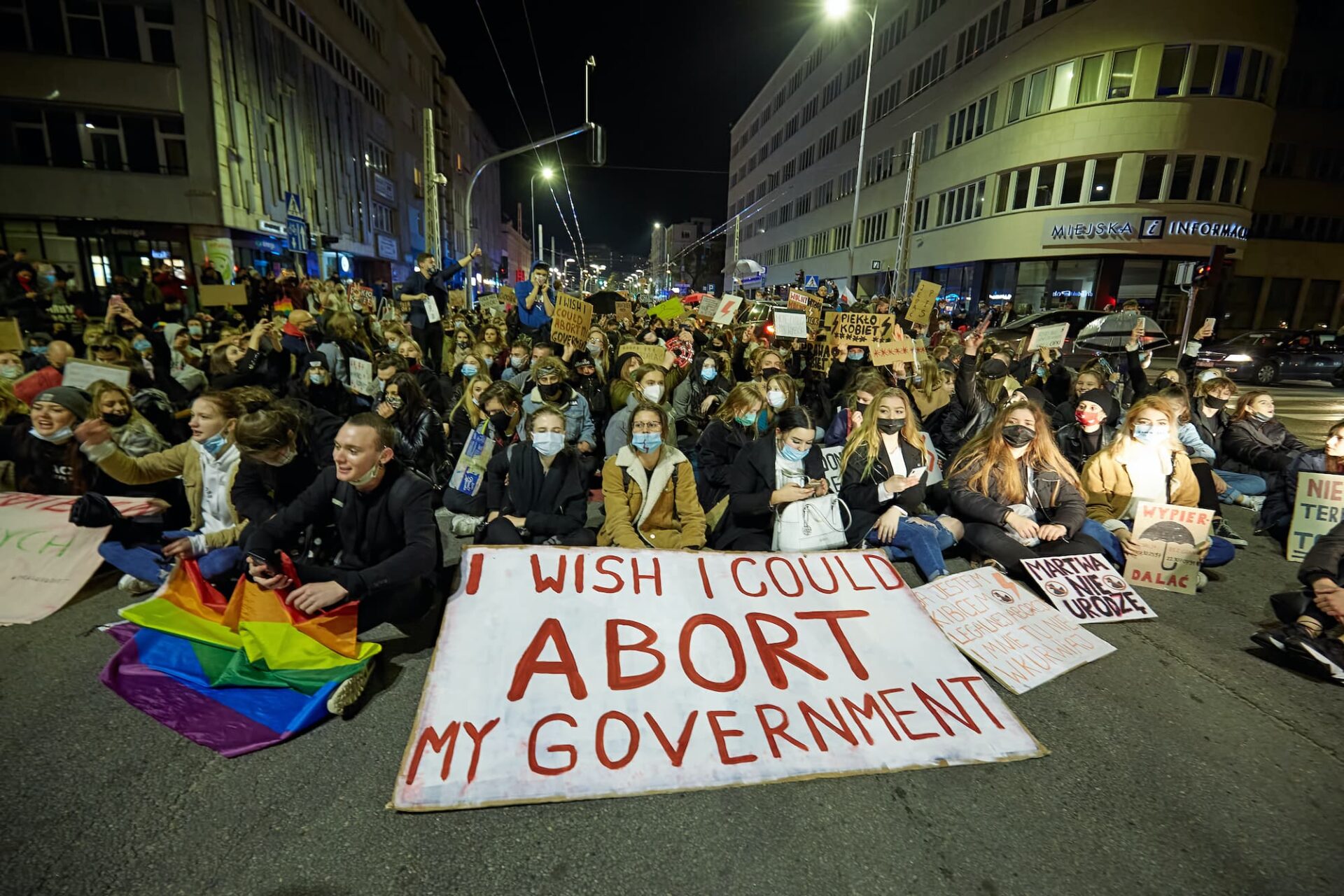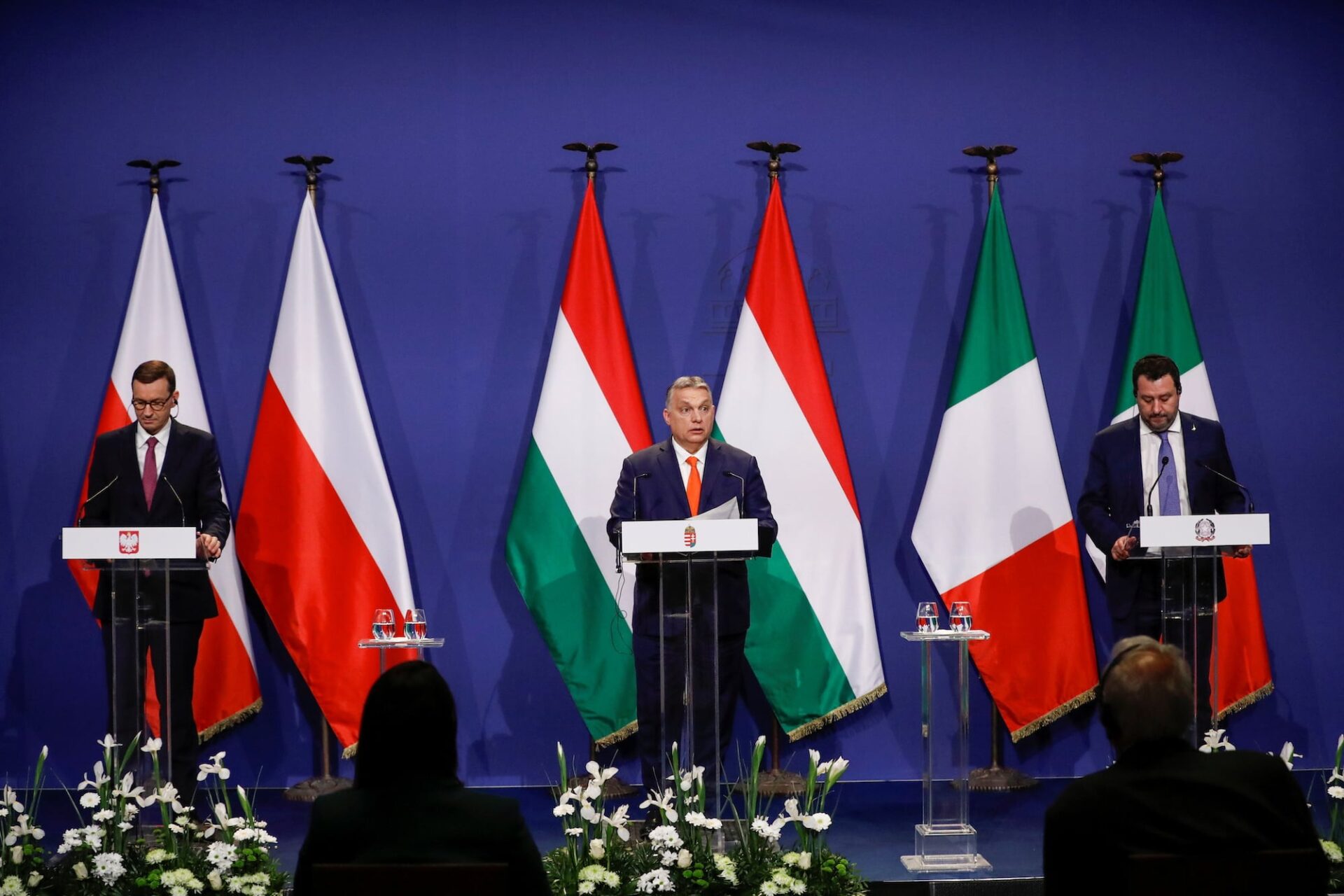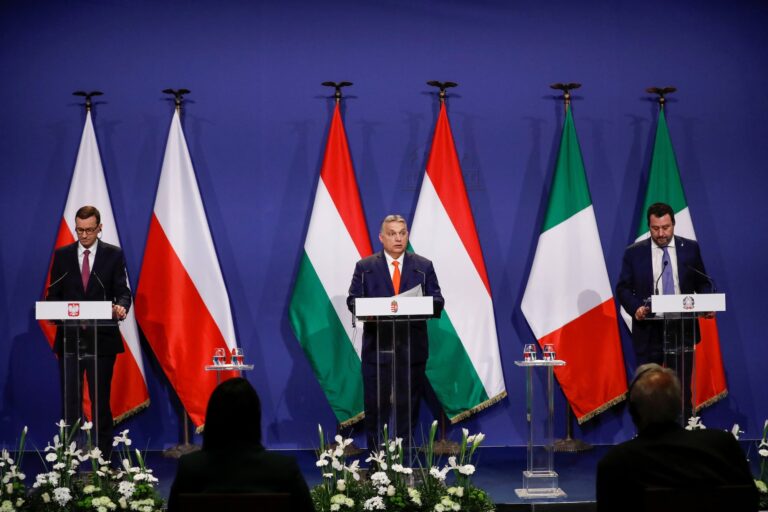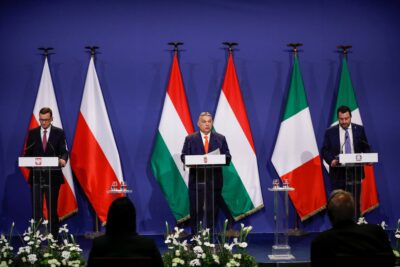The pandemic did not kill the far right. Nor did it stifle media interest in the topic. The painstaking attention devoted to the formation of a ‘Far-Right International’ revolving around the Hungarian Fidesz, the Italian League, and the Polish Law and Justice (PiS) parties is a good case in point. After a first meeting in Budapest on 1 April 2021, the Hungarian and Polish prime ministers, Viktor Orbán and Mateusz Morawiecki, respectively, and the leader of the League, Matteo Salvini, were expected to hold another joint event in Warsaw in May. As of yet, no information has been disclosed regarding this second meeting, implying that the three leaders were caught up in more important business.
by Andrea L. P. Pirro, Scuola Normale Superiore
The far right’s improved electoral and coalition-building prospects at the supranational level have become a hot topic in the run-up to European Parliament elections. In this sense, the May 2019 election was no exception. On this occasion, the far right gained some ground, but not as much as expected. Most notably, it failed to coalesce under a single banner in the European Parliament; far-right parties are now scattered across the Identity and Democracy (ID), European Conservatives and Reformists (ECR), and European People’s Party (EPP) groups. The fragmentation of the far right in the European Parliament is quite unexceptional given these parties’ traditional inability to overcome specific national interests and personal animosities. Yet, when the ‘migration crisis’ peaked in summer 2015, the European far right had collectively converged towards a common anti-immigration platform, suggesting that the prospects for cooperation among these forces were higher than ever before.
Ahead of the most recent European Parliament elections, there was also much speculation about the fate of Orbán’s party, Fidesz, after the suspension of its EPP membership (in March 2019) and, in particular, whether it would leave the group to join forces with other far-right parties at the supranational level. Viktor Orbán had been the EU’s enfant terrible since Fidesz’s return to power in 2010, but the EPP appeared reluctant to admonish—let alone act decisively against—the repeated breaches of civil liberties and rule of law perpetrated by its Hungarian member party. The EPP’s unwillingness to deal with the autocrat in its midst is well documented and rested on electoral as well as economic considerations. Fidesz finally left the EPP in March 2021, anticipating an imminent expulsion procedure over rule-of-law concerns. As a ‘non-attached’ party, Fidesz’s position within the European Parliament has been lowered (mostly in terms of access to funding and allocation of speaking time in plenary debates), hence Orbán’s dire need to find a new transnational home.
Fidesz’s closest international ally is the Polish PiS, which is currently a member of the ECR. Both Fidesz and PiS are government forces, and both have exploited their position in power to set their countries on an illiberal track. In addition, first Poland (in 2017) and then Hungary (in 2018) have seen TEU Article 7 procedures launched against them over breaches of EU values. Besides ideological contiguities, the two parties are thus also committed to resisting EU demands regarding compliance with the rule of law and have vowed to back each other against sanctions and other punitive measures.
Since the outbreak of COVID-19, these parties have gone to great lengths to cement their hold on power and further curb the rights and liberties of those they ideologically define as ‘enemies of the nation’. In Hungary, Orbán used emergency powers to establish a system of rule by decree, which allowed his government to outlaw changing gender on documents after birth—de facto ending legal recognition of transgender people—and to ensure that only heterosexual married couples could adopt children. In Poland, the Constitutional Tribunal, the country’s top court, which has been stacked with PiS allies, banned the termination of pregnancies due to foetal defects following a popular PiS-backed petition. This decision leaves abortion possible only in cases of rape and incest, or when the mother’s life is in danger. Amid a surge in new COVID-19 cases, the party, led by Jarosław Kaczyński, has also laid out plans to bar same-sex couples from adopting children, even as single parents. Thus, there are striking similarities in the ‘illiberal playbooks’ enacted by Fidesz and PiS.

Protests against ban on abortion. Gdynia, Poland, 27 October 2020. Source: kamilewski / Shutterstock
Over the past decade, Orbán inevitably became a role model for other far-right leaders. His Italian admirers include Matteo Salvini (whose League party is a member of the ID group) and Giorgia Meloni (from the Brothers of Italy party, a member of the ECR group, the same as PiS), who have had frequent and friendly contacts with the Hungarian prime minister. Salvini and Meloni tried to lure Orbán into their respective parliamentary groups, but all attempts failed because Fidesz enjoyed its comfortable position as the far-right powerhouse within the EPP. Now that the scenario has changed, Orbán is considering the options available to him.
Salvini had been quick in responding to Orbán’s call to arms—a move that has much to do with ongoing developments in Italian party politics. Salvini’s party, the League, has led Italian opinion polls since 2018, when it joined an ‘all-populist’ coalition with the ideologically ambiguous 5 Star Movement (M5S). While in government, the League literally cannibalised its coalition partner, winning over former M5S voters, and doubling its vote share from 17.4% (in the 2018 general elections) to 34.3% (in the 2019 European Parliament elections). In August 2019, however, Salvini’s tenure in government ended with a failed early election bid. Ever since then, the League has plummeted in the polls (currently sitting at around 21%), mostly to the benefit of the other far-right party, Meloni’s Brothers of Italy (now hovering around 19%, having grown from a 4.3% share in the 2018 general elections).
The League and Brothers of Italy are technically allies at home, but Salvini had been a fair-weather friend over the last three years. He indeed formed a government with the M5S, leaving his right-wing allies behind (i.e., in opposition). While in opposition and since the outbreak of COVID-19, Salvini’s irresponsible politicking did not bode well with the ongoing crisis and his party’s allies grew more wary, ultimately causing the haemorrhaging of support outlined above. But when the opportunity emerged to join a government of ‘national unity’ under the leadership of former European Central Bank president Mario Draghi (February 2021), Salvini did not hesitate to get on board and virtually leave Brothers of Italy as the only opposition party in the Italian parliament. Amid declining support rates, Salvini has been under mounting internal pressure to detoxify his party’s image and present the League as a respectable governing force. Participation in the Draghi government fits squarely into this new strategy. Which brings us to the growing distance between the League and its European allies in the ID group (e.g., the French National Rally and the Alternative for Germany). The League’s decision to join a pro-EU technocrat-led government and vote in favour of the EU’s recovery plan in the European Parliament was seen as a bad joke by some of its Eurosceptic partners.
It is thus evident that Fidesz and the League are trying to reconfigure alliances in the European Parliament—with the latter also attempting to outflank its far-right competitor at home, Brothers of Italy. Both Orbán and Salvini are keen to form a new group, possibly drawing members away from the ECR and ID groups. The two leaders are well aware that if these two groups were simply to merge the resulting group would qualify as the second largest in the European Parliament. (To form a new group in the European Parliament, the ‘Far-Right International’ would need 23 MEPs from at least seven Member States.) It is, however, still not clear which forces would join and on what grounds they would be prompted to do so. Many ECR party members are quite wary of the stigma attached to Marine Le Pen’s National Rally, and even Orbán has referred to joining forces with the French leader as crossing a red line, categorically ruling out alliances with her party. This excludes the possibility that Fidesz could join the ID group or form an all-encompassing alliance including the National Rally. So far, the Hungarian prime minister’s efforts amount to nothing new compared to the repeated (scattered) attempts to form far-right transnational alliances.
But would a ‘European renaissance’ based on a lowest common denominator of social ultra-conservatism suffice to bring together different far-right parties? The answer is provisionally no, and this has to do with the diverging convictions of Fidesz, the League, and PiS with regard to foreign policy and immigration. On the one hand, Fidesz and the League maintain close ties with the Russian government and have often been portrayed as Putin’s Trojan horses in the EU. On the other hand, PiS is staunchly anti-Russian and will not reconsider its Atlanticist stance. At the same time, the three far-right parties’ anti-immigration ideas might converge, but decisions pertaining to asylum and migration policies have already sparked heated debates among EU Member States. Fidesz in Hungary and PiS in Poland are unwilling to compromise on resettlement quotas, particularly at the expense of countries of first arrival like Italy.
This leaves us with the Polish PiS as a lukewarm founding partner of this ‘Far-Right International’. Kaczyński’s party might have little incentive to abandon its comfortable role as chief delegation within the ECR group, especially with no clear reassurances over the durability of a new far-right joint venture. Not to mention that the League would be the first to jump ship if offered the chance to join the EPP. After all, the defining question for PiS remains collaboration between the Hungarian and Polish governments over rule-of-law matters at the EU level. Neither their targeted war on EU institutions nor their broader war on liberalism requires a formal partnership.
Fidesz, the League, and PiS will continue promoting some form of transnational cooperation and test the waters for a more formalised alliance—certainly as long as this will ensure enough publicity and additional exposure. As on previous occasions, this might bear some fruit in the short run; the parties might actually find enough members to form a new group in the European Parliament, but this will fall short of the sweeping tide the sponsoring parties are claiming to spearhead. Ultimately, contradictions and tensions might get in the way of the alliance and tear far-right parties apart. This should not minimise the implications of these attempts, especially considering the ability of far-right parties to alter the nature of the systems in which they operate and to deprive the EU of its coercing power. So far, however, their proclamations remain vague and hypothetical, mere whimpers compared to the clamour surrounding their meetings.
Cover photo: Hungary’s Prime Minister Viktor Orban (C), Poland’s Prime Minister Mateusz Morawiecki (L) and Italy’s League party leader Matteo Salvini (R) give a statement after their meeting in Budapest, Hungary, April 1, 2021. Source: BERNADETT SZABO / Reuters / Forum
Andrea L. P. Pirro is assistant professor at the Faculty of Political and Social Sciences, Scuola Normale Superiore, Florence. He is editor of the journal East European Politics and editor of the Routledge Book Series in Extremism and Democracy. He has published on far-right politics, populism, Euroscepticism, elections and protests.
The views and opinions expressed on our blog are those of the authors, representing a wide range of viewpoints, and do not necessarily reflect the position of VSquare or our affiliated organisations.







